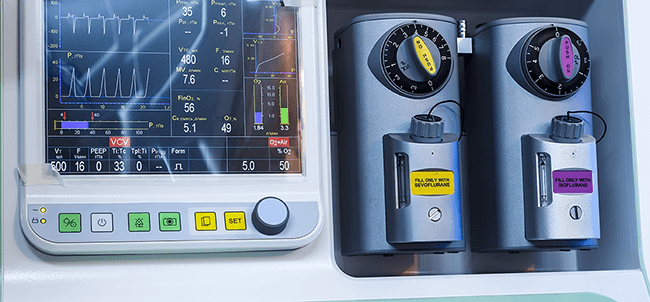In this blog post, we’re taking a look at a study that tested inspiratory muscle strength training (IMST) on respiratory muscle strength and looks at how it affects the weaning outcome of FTW patients.
Key Findings
- Respiratory muscle weakness contributes to failure to wean (FTW) from mechanical ventilation.
- 10% to 15% of patients experience FTW, which leads to diaphragm weakness and worse clinical outcome.
- Up to 3 weeks of respiratory muscle training (RMT) improved weaning success from 47% to 71% of patients due to increased respiratory muscle strength.
Patient Impact
RMT by IMST effectively improves weaning success after mechanical ventilation.
Study Methods
Patients on mechanical ventilation received IMST for up to three weeks, or until weaning. Respiratory muscle strength was measured by maximal inspiratory pressure (MIP) Regular breathing trials were performed to assess the patient’s ability for unaided breathing. 72 hours of breathing without MV was considered as successful weaning.
Study Results
Patients who received IMST showed a significant improvement in MIP and had a significantly higher weaning success rate than the control group (71% and 47%, respectively).
Respiratory muscle training by IMST significantly increases the chances of successful weaning of mechanical ventilation. It is a clinically practical and safe method to improve weaning outcome.

0 Comments